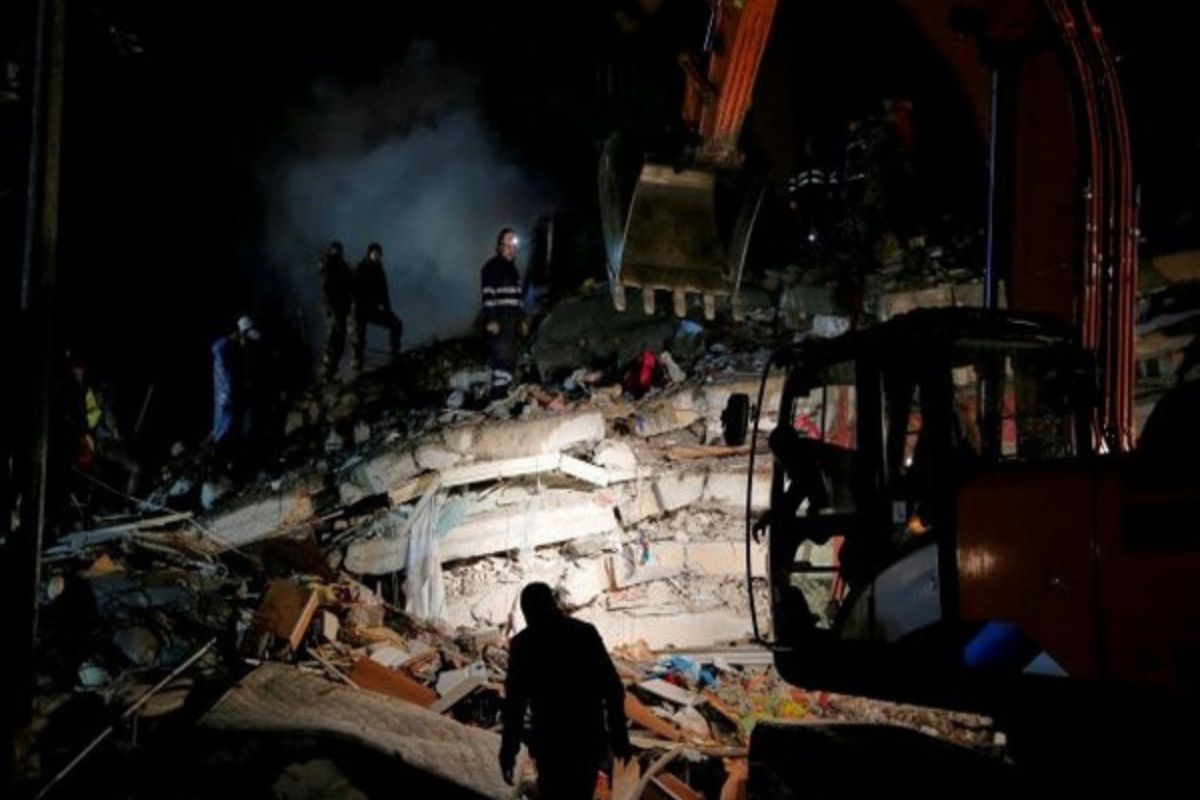The death toll in Turkey and in neighbouring Syria following powerful earthquakes on Monday rose to over 4,000, the Washington Post reported.
Turkey and Syria were hit by three consecutive devastating earthquakes of magnitude 7.8, 7.6 and 6.0 on Monday, reported Washington Post. Initially, a magnitude 7.8 quake struck early Monday at 04:17 local time (01:17 GMT) 23 kilometers (14.2 miles) east of Nurdagi, in Turkey’s Gaziantep province near the Syrian border, at a depth of 24.1 kilometers (14.9 miles), the US Geological Survey said.
Advertisement
This was followed by a 7.5-magnitude quake around 130 kilometres north of Gaziantep, and with epicentre was in the Elbistan district of Kahramanmaras province in Turkey diaccording to the US Geological Survey. Tremors were also felt in several neighboring countries, including Lebanon and Syria.
The third earthquake of magnitude 6.0 on the Richter scale hit Goksun, Turkey on Monday. The earthquake — felt as far away as Lebanon, Jordan, Israel and Egypt — occurred in Kahramanmaras province, north of Gaziantep, near the Syrian border.
Officials and agencies confirmed that at least 4,372 deaths have been confirmed in Turkey and Syria and according to the World Health Organisaton (WHO) the toll could surpass 20,000
Turkey’s toll rose to 2,921 as of Tuesday morning, according to Yunus Sezer, Turkey’s head of disaster services.
A total of 15,834 injuries have been reported, Sezer said in a news conference in Ankara.
Sezer said he would provide a more comprehensive update at 6 am local time (10 pm ET).
In Syria, 1,451 deaths and 3,531 injuries have been reported by officials, reported CNN.
Rescue efforts are ongoing, and the number of people killed, injured and displaced probably will climb, reported Washington Post.
The initial quake of 7.8-magnitude was followed by dozens of powerful aftershocks, including one recorded at 7.5 magnitudes in the same fault zone of south-central Turkey on Monday afternoon. Most of the damage is in southern Turkey and northern and central Syria.
It is the strongest earthquake to hit Turkey in more than 80 years. Thousands of emergency responders have been searching for people amid the rubble of collapsed buildings, and medical teams have been tending to the injured. The full scale of the damage is still being determined, reported Washington Post.
The powerful earthquake and its dozens of aftershocks, including a second quake almost as strong as the initial one, come during frigid winter temperatures and an existing humanitarian crisis in Syria, compounded by more than a decade of destructive civil war.
CNN reported that thousands of buildings collapsed in both countries and aid agencies are particularly worried about northwestern Syria, where more than 4 million people were already relying on humanitarian assistance.
The weather and the scale of the disaster are creating challenges for aid teams, according to Turkish Health Minister Fahrettin Koca, who spoke during a news conference carried out live on CNN Turk on Monday evening from Hatay Emergency Coordination Center.
“The weather conditions and the scale of the disaster make it hard for our teams to reach the region,” Koca said, adding “our helicopters could not take off today due to weather conditions.”
“Heavy snowstorms have also recently hit parts of Syria and Turkiye, with further sub-zero temperatures forecasted,” UNICEF said in a statement released on Monday.
All state institutions have been mobilized in the recovery effort, including the national police, municipal workers, the Disaster and Emergency Management Agency and the Gendarmerie, an armed general law enforcement organization part of the Interior Ministry that maintains security and safety.
At least 2,256 emergency health personnel workers have so far reached earthquake-affected provinces, the health minister said.
At least 602 ambulances and two ambulance planes have been dispatched from neighbouring cities. Also, 187 teams part of Turkey’s National Medical Rescue Team (UMKE) have also been dispatched.
“We have moved teams from surrounding provinces to the region,” the minister said.
Iskenderun State Hospital, a hospital in the city of Iskenderun, collapsed due to the earthquake.











